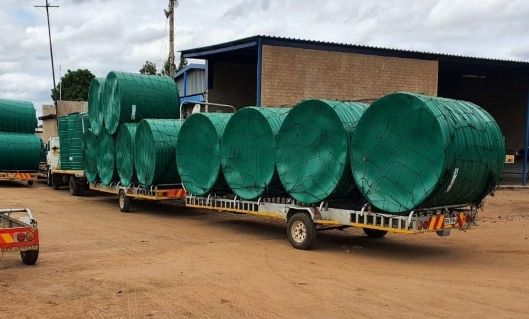Office of the Premier 2020/06/23 - 22:00

SAnews
The Department of Water and Sanitation (DWS) in Gauteng has increased the number of water tanks to water stressed communities to 2 244, as government eases the lockdown regulations under alert level 3.
As the regulations are being eased, many businesses, especially informal ones, are expected to open and start operations, and this may increase the need for more water.
In addition to supplying water tanks to congested communities, schools are also receiving water tanks to ensure they meet the health and safety standards required to prevent the spread of Coronavirus.
The provision of water tanks by the department follows a call by President Cyril Ramaphosa for needy communities to be targeted for water supply to stave-off the impact of the virus on vulnerable communities.
Across Gauteng, communities residing in overcrowded environments, where it is feared that a significant number of people may be affected, water tanks have been delivered on a continuous basis since the outbreak of the virus.
Areas that the department has aided with water tanks are in the cities of Johannesburg, Tshwane, Ekurhuleni and the District Municipalities of Sedibeng and West Rand.
The DWS Gauteng Provincial Head, Sibusiso Mthembu, said as government is easing lockdown restrictions, there will be an expectation to cover even more areas that still need water tanks as businesses start to open.
Mthembu said the informal sector, which includes businesses in informal settlements, will require water to conduct business and as a result, there is a need to push for more water tanks and to make sure they are operational.
"As more and more people go out of their homes to make a living, there will be more usage of water and this is especially so in overcrowded areas, where informal businesses operate.
"Densely-populated areas must be focused on to encourage community members to take hand washing seriously to prevent a spike in infections," Mthembu said.
Mthembu urged communities to guard against the destruction of water infrastructure and to report such to the police.
"There are rogue elements in communities who made it their aim to destroy infrastructure that is aimed at making the lives of the people better.
"Any positive step that government takes, they make sure it takes two steps backwards and so it rests with communities to stop these malicious acts," Mthembu said.
He emphasised the need for the protection of water tanks received by schools, saying it is vitally important that learners continue to catch up on their studies without any negative interference.
RELATED NEWS
No related news

